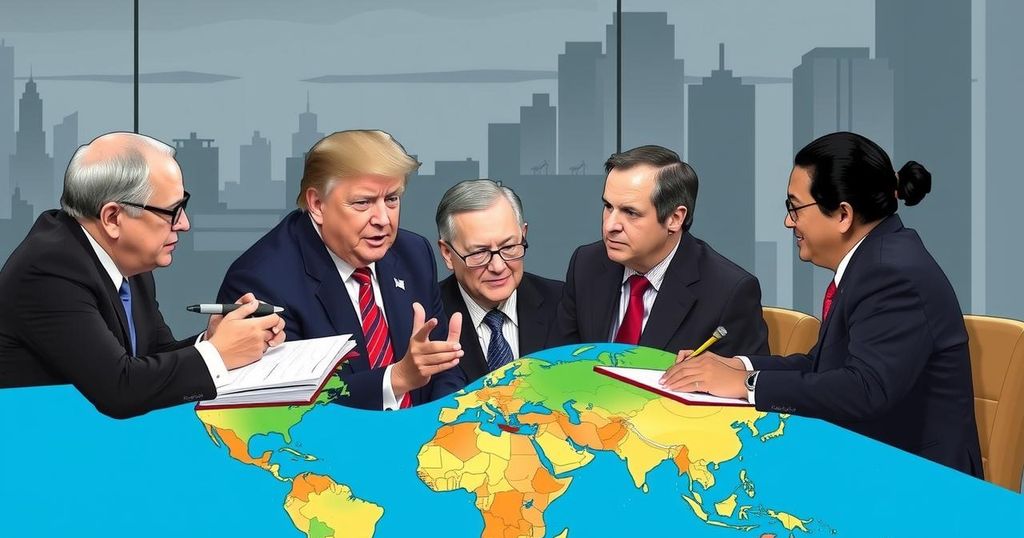Several leaders are notably absent from this year’s COP climate conference, including Papua New Guinea which is boycotting as a protest against wealthier nations. Argentina’s withdrawal of its delegation raises concerns over future participation in global climate agreements. Other G20 leaders opted to send representatives instead. France’s climate minister announced her boycott in response to disparaging remarks made by the Azerbaijani Prime Minister, indicating rising tensions in international climate discussions.
As the global climate crisis intensifies each year, the urgency for action becomes ever more pressing. This year, however, the absence of several country leaders at the annual Conference of Parties (COP) climate conference signals a significant protest against the historical failures seen in climate negotiations. Notably absent this year is Papua New Guinea, whose Prime Minister James Marape stated that their non-attendance reflects discontent with wealthier nations’ lack of support for nations disproportionately affected by climate change.
Moreover, the government of Argentina has also taken a step back from their expected participation. President Javier Milei, who holds controversial views regarding climate change, withdrew the entire Argentinian delegation shortly after they arrived, sparking fears of a potential withdrawal from the Paris Agreement. These decisions have raised alarms about the commitment of various nations to the COP process and the broader implications for global climate initiatives.
In addition to these notable absences, many leaders from G20 nations, including the United States, China, and Germany, have opted to send representatives rather than attend personally. France’s climate minister, Anges Pannier-Runacher, announced her boycott, criticizing Azerbaijani Prime Minister Ilham Aliyev for his disparaging remarks regarding French territories and accusing him of undermining important climate discussions with an inappropriate personal agenda.
These developments reflect a broader frustration with the negotiation process at COP, especially from nations most impacted by climate change, further complicating the quest for global climate action.
The Conference of Parties (COP) is an annual gathering of world leaders, climate scientists, and advocates focused on addressing the pressing climate crisis. This year’s conference occurs against a backdrop of increasingly severe climate-related disasters, emphasizing the stakes involved in effective global cooperation. However, the participation of state leaders remains critical for the success of COP discussions, and instances of non-attendance can hinder progress, particularly for vulnerable nations that depend on international support and solidarity in combating climate change.
The absences of key leaders at this year’s COP climate conference underscore significant frustrations with the current state of international climate negotiations. Papua New Guinea’s withdrawal serves as a potent narrative around the shortcomings of industrialized nations in supporting those most affected by climate change, while Argentina’s controversial decision highlights the spectrum of belief surrounding climate action. As notable nations approach COP with varying levels of commitment, acknowledging and addressing these disparities will be crucial for the future of global climate cooperation.
Original Source: abcnews.go.com






